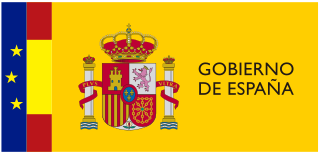
The Minister for Posts and Telegraphs was the holder of a position in the Government of Ireland. From 1924 until 1984 – when it was abolished – the minister headed the Department of Posts and Telegraphs, the government-run postal, telegraph and telephone service covering the Republic of Ireland.
The Minister for Labour was originally a position in the Government of the Irish Republic, the self-declared state which was established in 1919 by Dáil Éireann, the parliamentary assembly made up of the majority of Irish MPs elected in the 1918 general election. Constance Markievicz was the first person to hold the post. The office did not continue into the Executive Council of the Irish Free State.

The Government of Ireland is the executive authority of the Republic of Ireland, headed by the Taoiseach, the head of government. The government – also known as the cabinet – is composed of ministers, each of whom must be a member of the Oireachtas, which consists of Dáil Éireann and Seanad Éireann. Most ministers have a portfolio of specific responsibilities such as departments or policy areas, although ministers without portfolio can be appointed.

In the Government of the United Kingdom, the Minister for the Civil Service is responsible for regulations regarding His Majesty's Civil Service, the role of which is to assist the governments of the United Kingdom in formulating and implementing policies. The position is invariably held by the prime minister of the United Kingdom.

The government of Spain is the central government which leads the executive branch and the General State Administration of the Kingdom of Spain.

The Ministers and Secretaries Acts 1924 to 2020 is the legislation which governs the appointment of ministers to the Government of Ireland and the allocation of functions between departments of state. It is subject in particular to the provisions of Article 28 of the Constitution of Ireland. The Acts allow for the appointment of between 7 and 15 Ministers of Government across 17 Departments, and for the appointment of up to 20 junior ministers, titled Ministers of State, to assist the Ministers of Government in their powers and duties.

The Department of Finance is a department of the Government of Ireland. It is led by the Minister for Finance.

The Department of Justice is a department of the Government of Ireland. It is led by the Minister for Justice. The department's mission is to maintain and enhance community security and to promote a fairer society in Ireland.
The Department of Housing, Local Government and Heritage is a department of the Government of Ireland. It is led by the Minister for Housing, Local Government and Heritage.
The Department of Enterprise, Trade and Employment is a department of the Government of Ireland. It is led by the Minister for Enterprise, Trade and Employment.
The Department of Agriculture, Food and the Marine is a department of the Government of Ireland. According to the department, its mission is to "lead the sustainable development of a competitive, consumer focused agri-food sector and to contribute to a vibrant rural economy and society". It is led by the Minister for Agriculture, Food and the Marine.

The Department of Education is a department of the Government of Ireland. It is led by the Minister for Education.

The Department of Health is a department of the Government of Ireland. The department's mission is to "support, protect and empower individuals, families and their communities to achieve their full health potential by putting health at the centre of public policy and by leading the development of high quality, equitable and efficient health and personal social services." The department is led by the Minister for Health.
The Department of the Environment, Climate and Communications is a department of the Government of Ireland that is responsible for the telecommunications and broadcasting sectors and regulates, protects and develops the natural resources of Ireland. The head of the department is the Minister for the Environment, Climate and Communications.

The Department of Social Protection is a department of the Government of Ireland, tasked with administering Ireland's social welfare system. It oversees the provision of income support and other social services. It is led by the Minister for Social Protection.
The Department of Children, Equality, Disability, Integration and Youth is a department of the Government of Ireland. It is led by the Minister for Children, Equality, Disability, Integration and Youth.

The Department of Tourism, Culture, Arts, Gaeltacht, Sport and Media is a department of the Government of Ireland. The mission of the department is to promote and develop Ireland's tourism, culture, and art; and to advance the use of the Irish language, including the development of the Gaeltacht. It is led by the Minister for Tourism, Culture, Arts, Gaeltacht, Sport and Media.

The Minister for Local Government, currently held since 5 April 2023 by Ron Hoenig, is a minister in the New South Wales Government and has responsibilities which includes all local government areas and related legislation in New South Wales, the most primary of which is the Local Government Act 1993. The minister administers the portfolio through the Planning and Environment cluster, in particular through the Office of Local Government, and a range of other government agencies. The minister assists the senior cluster minister, the Minister for Climate Change, the Environment, and Heritage. Both ministers are responsible to the Parliament of New South Wales.

The Registration of Criminals and Undesirable Persons Act 1969, is an Act of the Parliament of Malaysia. It was enacted to consolidate and amend the law providing for the registration of certain criminals, banishees, expelees, deportees and restrictees and for other purposes connected with it.

The Department of Transport is a department of the Government of Ireland that is responsible for transport policy and overseeing transport services and infrastructure. The department is led by the Minister for Transport.














